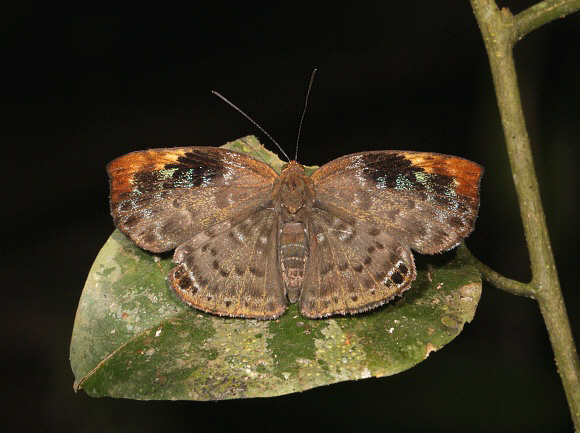 Menander hebrus, Rio Shima, Satipo, Peru – Adrian Hoskins
Menander hebrus, Rio Shima, Satipo, Peru – Adrian Hoskins
Introduction
There are 10 members of the genus Menander, distributed variously from Nicaragua to Guyana and south across Amazonia to Peru and Bolivia. Menander hebrus is found from Surinam to Bolivia.
Habitats
This species is found in rainforest habitats at altitudes between 0-900m.
Lifecycle
The pale green eggs are globular and covered with a network of raised pentagons. They are laid singly on the stems or shoots of Marcgravia, Sourubea and Norantea ( Marcgraviaceae ) either in the canopy or on young saplings. The larvae have a tough trilobite-like carapace which presumably affords them some protection from the aggressive Camponotus and Crematogaster ants that are invariably in attendance.
Adult behaviour
The adults have a rapid erratic flight. They are usually encountered as solitary males, perching on foliage with wings outspread, in areas of dappled sunlight along forest trails. They sometimes use the same perching place for several days at a time. Females tend to be active mainly during the early part of the afternoon. Both sexes nectar at Miconia, Citrus, Lantana and Cordia. The adults live for about a month and are found throughout the year.
